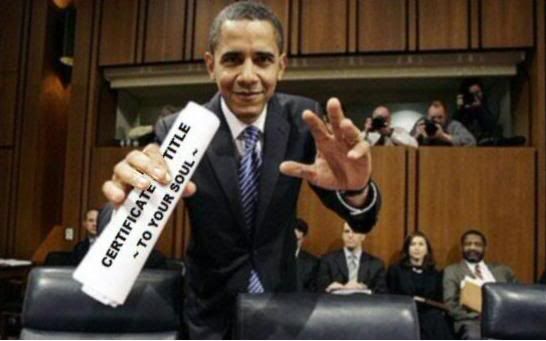
Posted on 03/21/2010 11:08:47 AM PDT by Jim Robinson
With the House set to vote on health-care legislation, the congressional debate on the issue seems to be nearing its conclusion. But if the bill does become law, the battle over federal control of health care will inevitably shift to the courts. Virginia's attorney general, Ken Cuccinelli II, has said he will file a legal challenge to the bill, arguing in a column this month that reform legislation "violate[s] the plain text of both the Ninth and Tenth Amendments." On Friday, South Carolina Attorney General Henry McMaster and Florida Attorney General Bill McCollum announced that they will file a federal lawsuit if health-care reform legislation passes.
Will these cases get anywhere? Here is a guide to the possible legal challenges to a comprehensive health-care bill.
The individual mandate.
Can Congress really require that every person purchase health insurance from a private company or face a penalty? The answer lies in the commerce clause of the Constitution, which grants Congress the power "to regulate commerce . . . among the several states." Historically, insurance contracts were not considered commerce, which referred to trade and carriage of merchandise. That's why insurance has traditionally been regulated by states. But the Supreme Court has long allowed Congress to regulate and prohibit all sorts of "economic" activities that are not, strictly speaking, commerce. The key is that those activities substantially affect interstate commerce, and that's how the court would probably view the regulation of health insurance.
But the individual mandate extends the commerce clause's power beyond economic activity, to economic inactivity. That is unprecedented. While Congress has used its taxing power to fund Social Security and Medicare, never before has it used its commerce power to mandate that an individual person engage in an economic transaction with a private company...
(Excerpt) Read more at washingtonpost.com ...
It certainly was frayed around the edges from the very beginning, but it took the Progressive Movement to really destroy the entire structure. Now we have a free for all. Unlimited in any way. You are correct. The anti-federalists have ended up being right.
time will tell
Correction:
Justice Roberts, not Stevens
Just to make sure I’m not mistaken, the Supreme Court will have original jurisdiction over any suit Idaho and, presumably, other states may bring against the United States (or its officers) concerning this act, correct?
It’s been a while since I’ve looked at the case law on this. Obviously simply putting the state’s name in the caption isn’t enough for a state to be considered a “party” under Art. III s. 2, but this certainly seems to be the sort of case anticipated by the original jurisdiction clause.
Regardless, it will be interesting to see how quickly (or slowly) this happens. Could you imagine being the special master? The number of motions by nonstate intervenors alone ought to be staggering.
This would be an outstanding opportunity for the Roberts court to substantially roll back some of the post-1937 Commerce Clause jurisprudence - it’s unfortuante that I don’t think any justice other than Thomas is really prepared to do so.
I think the individual mandate will be gone, but I don’t think the court will go a whole lot further. Losing the individual mandate could be enough to unravel the whole thing, though. With “community rating” and “guaranteed issue”, which I’m pretty sure are both in the current bill, we’ll probably see the same thing happen nationwide that happened in New York after their “health care reform” - millions of younger people will drop their insurance with the knowledge that, if they get sick, they can just get insurance at the same price.
Without the fines from the individual mandate (and arguably even with those fines), there is really no reason for a healthy person to have medical insurance when he can’t be denied coverage or charged a higher premium if he waits until after he gets sick to buy the insurance.
Will they have it, or will they assert it? Remember, the Supremes can reach down and grab any case they want, if they're so inclined.
It's been a while since I've looked as well, but wouldn't the suit have to be between two states, not just as a plaintiff, and the Federal government as the defendant for the Supreme Court to have original jurisdiction. Otherwise, I believe all such cases are filed with the DC Circuit - could be wrong. Massachusetts vs EPA, comes to mind immediately.
“No, but the US is no longer governed under the constitution...our politicians have discarded that document.”
That’s a fact.
If so, on what basis do you think fedgov control of health care is unconstitutional?
ping

Disclaimer: Opinions posted on Free Republic are those of the individual posters and do not necessarily represent the opinion of Free Republic or its management. All materials posted herein are protected by copyright law and the exemption for fair use of copyrighted works.